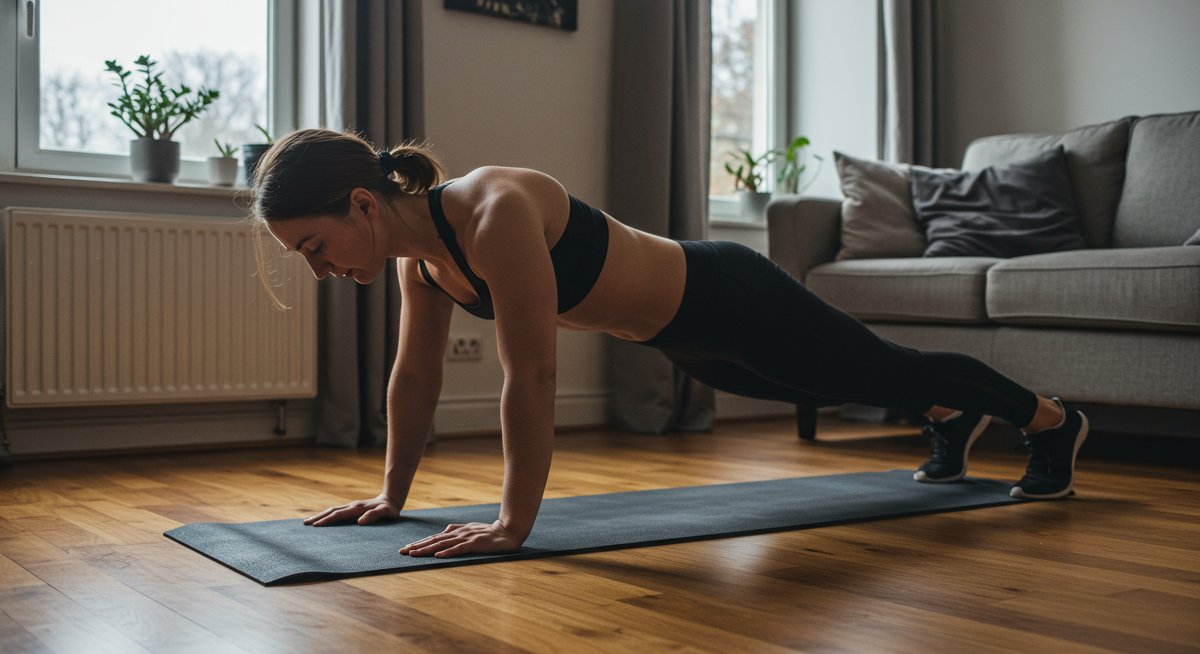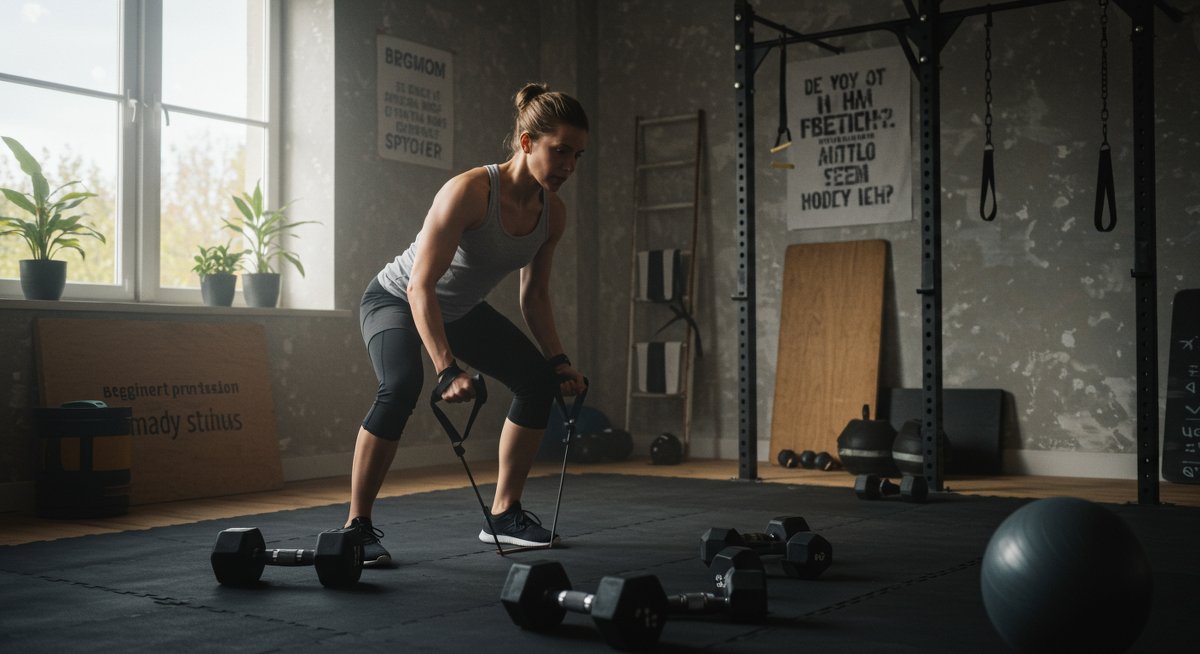That Reddit Post About Home Gym Costs
So, I was scrolling through r/homegym the other day, and I came across a post that really caught my eye. It was a simple post, someone listing out the prices of all their home gym equipment. Nothing fancy, just a raw breakdown of costs. The title was straightforward: "Price of all my equipment (before taxes/shipping, and at time of purchase)."
What struck me wasn't the specific numbers, but the comments and the overall vibe. There was a lot of talk about how expensive home gyms can be, and a bit of that "keeping up with the Joneses" mentality. You know, the feeling that you need the latest and greatest equipment to actually get results.
But the post itself had a great message: "Don't let anyone tell you that the price of equipment makes or breaks a home gym. Buy what you want, not because of brand/trend/validation." That's what I want to dive into here. It’s so easy to get caught up in the hype and think you need all the fancy stuff. But honestly, that’s usually not the case. Building a solid home gym that works for you is totally achievable without emptying your bank account. Let's talk about how.

What People Get Wrong About Home Gyms
Okay, so let's break down some of the common misconceptions I see about building a home gym. The first one is the idea that you need a ton of equipment to get a good workout. I've seen people with garages overflowing with machines they barely use. The truth is, you can get a killer full-body workout with just a few key pieces. Think about versatile equipment that can be used for multiple exercises. A good set of adjustable dumbbells, resistance bands, and maybe a pull-up bar can take you a long way.
Another mistake is prioritizing brand names over functionality. There's definitely a prestige factor with some brands, but does that fancy logo actually make the equipment better? Usually not. Focus on finding durable, well-reviewed equipment that fits your needs, regardless of the name on the side. Also, many people think you need a dedicated room for a home gym. If you have the space, great! But you can get effective workouts in a small corner of your living room, a spare bedroom, or even your patio. It's about making the most of what you have.
Why "Perfect" Equipment Isn't Always Necessary
Here’s the thing: the perfect home gym setup doesn’t exist. What works for one person might be totally useless for another. Someone training for powerlifting is going to have very different needs than someone who just wants to stay generally fit. Don't fall into the trap of comparing yourself to others online. Their goals, their bodies, and their budgets are all different from yours.
And let’s be real, sometimes the pursuit of “perfect” becomes a form of procrastination. You spend so much time researching equipment, reading reviews, and planning your dream setup that you never actually get around to working out. It’s a classic case of analysis paralysis. The most important thing is to start. You can always upgrade your equipment later as you progress and figure out what you really need. This is one thing that I wish I would have known before starting. It would have saved me a lot of stress and money.
The Sneaky Costs Nobody Tells You About
Okay, so let's talk about the hidden costs of building a home gym. It's not just the big items like weights and benches. There are a bunch of smaller expenses that can really add up. Think about flooring. You probably don't want to drop weights directly on your hardwood floors, so you'll need some kind of protective matting. This can range from cheap foam tiles to more expensive rubber flooring.
Then there's storage. Where are you going to put all your equipment when you're not using it? Do you need a weight rack, dumbbell stand, or storage containers for resistance bands and other accessories? Shipping costs can also be a killer, especially for heavy items like weights. And don't forget about maintenance. You'll need to clean and lubricate your equipment regularly to keep it in good working order. This means buying cleaning supplies, lubricant, and maybe even replacement parts down the road.
Making Smart Choices With Limited Space
So, you're working with limited space? No problem! There are tons of ways to maximize your workout area. First, think vertical. A vertical weight rack can store dumbbells, kettlebells, and even resistance bands in a small footprint. A pull-up bar that mounts in a doorway is another great space-saver.
Folding equipment is also your friend. A folding weight bench can be easily stored when not in use. There are even folding treadmills and exercise bikes that take up minimal space. Mirror placement can also make a huge difference. A large mirror can make a small space feel much bigger and also help you check your form during exercises. Also, be realistic about what you actually need. Do you really need a bulky lat pulldown machine if you can get a similar workout with resistance bands? Probably not.
A Simple Plan to Get Started
Alright, so how do you actually build a budget-friendly home gym? Here’s a simple step-by-step plan:
- Assess your space: Figure out how much room you have to work with and what kind of flooring you have.
- Set a budget: Decide how much you're willing to spend and stick to it.
- Prioritize essential equipment: Start with versatile items like adjustable dumbbells, resistance bands, and a pull-up bar.
- Shop around for deals: Check online marketplaces, used equipment stores, and clearance sales.
- Don't be afraid to DIY: You can build your own plyo box, sandbag, or even weight plates with a little creativity.
- Start small and upgrade later: You don't need to buy everything at once. Start with the basics and add more equipment as you progress.
- Focus on consistency: The best equipment in the world won't do you any good if you don't actually use it.

My Personal Take: It's About the Work, Not the Gear
Here's my honest opinion on all this: Building a home gym is awesome, but it's not a requirement for getting fit. You can get a great workout with bodyweight exercises, running, or even just walking. The most important thing is to find something you enjoy and stick with it. If a home gym motivates you to work out more, then great! But don't let the cost or the perceived need for fancy equipment hold you back.
Remember that Reddit post that started all of this. The guy wasn't saying you shouldn't buy nice equipment. He was saying you shouldn't let the lack of it be an excuse. Fitness is about consistency, effort, and listening to your body. The equipment is just a tool to help you along the way. So, focus on the work, not the gear, and you'll be well on your way to reaching your fitness goals.